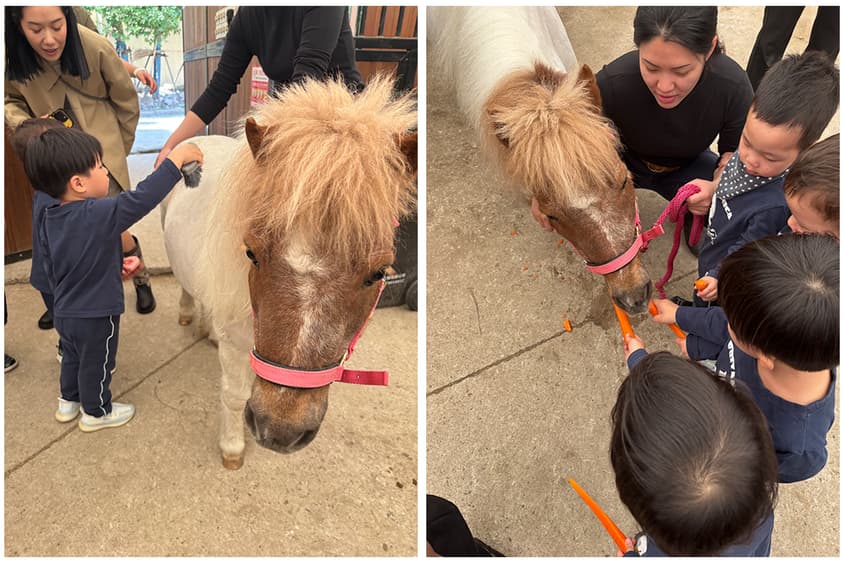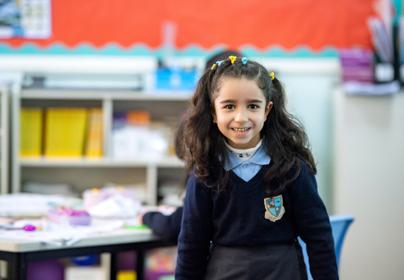In an ever-changing world, the importance of teaching young children to care for and respect the environment has never been more crucial. Instilling these values early on helps cultivate a generation that understands the significance of nurturing the planet. In an Early Years setting, we have a unique opportunity to lay this foundation through engaging, hands-on activities that resonate with young children.
Connecting with nature supports young children's development in multiple ways. Not only does it enhance their physical well-being, but it also promotes emotional stability and cognitive growth. By learning to value the environment, children develop empathy, responsibility, and a sense of community. Furthermore, these lessons help them appreciate the interconnectedness of all living things.
At Britannica, we can weave environmental care into the fabric of our daily routines through several methods:

- Gardening Activities: Planting flowers or vegetables allows children to learn about plant life cycles and the importance of nurturing living things. This gives them a sense of responsibility and joy as they watch their plants grow and thrive. Simple actions, such as watering the plants regularly, teach patience and the impact of consistent care.
- Recycling Initiatives and the Curiosity Approach: Having recycling bins in the classroom helps children understand the concept of waste reduction. By categorising materials, they learn the value of reusing resources and the positive impact they have on the environment. Creating art projects with recycled materials can also spark creativity and reinforce the message of sustainability.
- Nature Walks and Outdoor Exploration: Taking children on nature walks or trips, such as our recent visit to the mushroom farm and the stables, allows them to explore the environment directly. Observing wildlife, identifying plants, and listening to the sounds of nature encourage curiosity and a deeper appreciation for the natural world.
- Storytelling and Discussion: Sharing stories and books about the environment, followed by discussions, reinforcing the day's activities. These narratives inspire children to think critically about their role in environmental care and how they can contribute to a healthier planet.

By integrating environmental education in Early Years, we nurture a generation that will value and protect the world we live in. Through activities like planting, recycling, and nature exploration, children learn essential life skills and develop a lasting respect for our planet. As educators, it is our responsibility to guide them on this path, ensuring they grow up to be mindful stewards of the Earth.

Pre-Nursery has had a busy week. They had a fantastic time on their trip to the riding stables on Tuesday, where they learned how to look after a pony, feed it carrots, and even experienced riding. There were smiles all around! We also held our Spring Bonnet Parade this week, and I was very impressed by the amazing bonnets that arrived at school. The children looked fantastic and sang their song, “Spring is Here,” beautifully. We finished the week by listening to stories about horses and decorating our own colourful horses.

This week, Nursery had lots of fun reading "The Very Hungry Caterpillar." The children were excited to discuss what they would eat if they were a hungry caterpillar, with ice cream and chocolate cakes seeming to be the most popular suggestions! In maths, we explored comparing quantities and numbers. The children did a fantastic job counting different sets of objects and deciding which had more or fewer. This understanding then transferred into their play as they compared amounts using loose parts and Lego blocks to create different structures.

This week, Reception embraced the warmer weather by taking our Understanding of the World outdoors. The children extended their Home Corner play in the outdoor kitchen, using leaves, twigs, and dirt to "cook" for one another. They also practised practical life skills by washing and drying the dishes after their "meals." Previously, we planted various seeds and small herbs in the garden. As these plants grow and require more attention, some children have taken on the role of "Little Gardeners," tending to them each day. In Maths, we reviewed and sharpened our understanding of numbers up to 10. For phonics, we practised our tricky words and continued to recognise and blend using our digraphs. We also performed the Peter Rabbit song in the Spring Bonnet Parade and had a wonderful time engaging with families afterwards. This has been the highlight of their week, as they all did an amazing job!




